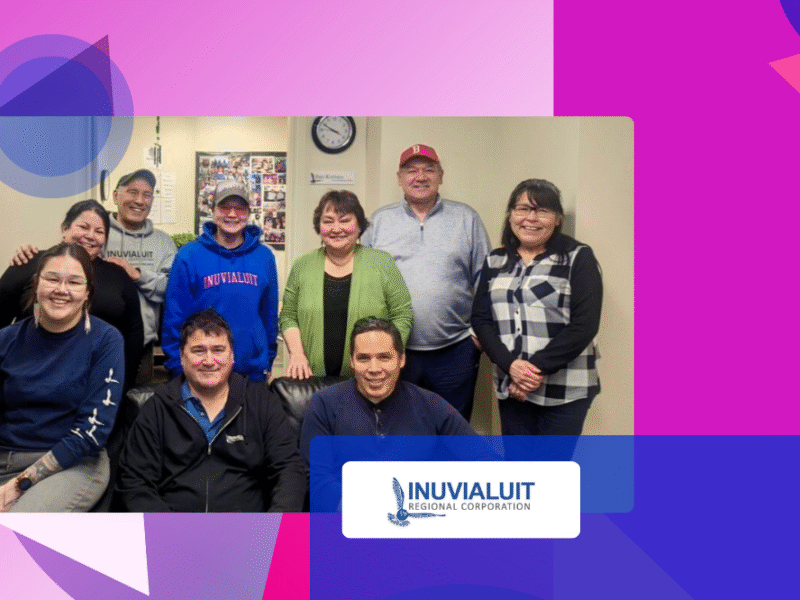What’s Past is Prologue

What we learned about adult skills in Canada from the first cycle of PIAAC, and what we still need to explore.
In December 2024, the Organisation for Economic Co-operation and Development (OECD) released the second cycle of data from the Programme for the International Assessment of Adult Competencies (PIAAC), offering new insights about adult skills levels, trends and issues. Researchers are already examining the data with a view to improving our understanding of adult skills in Canada and their relevance to productivity, prosperity and well-being. Using the new data, Canada has a once-in-a-decade opportunity to develop better, more-informed skills policies to enhance social and economic performance.
But we’re not starting from scratch. The first cycle of PIAAC data (covering 2012 in Canada) prompted a wave of research and analysis that offered a good picture of adult skills levels and their distribution in the Canadian population. There is a lot that we already know. Before embarking on a research agenda using the second wave of PIAAC data, we should revisit what the first cycle of research revealed and build on that foundation.
We found that while few studies examined how adult skills matter to productivity and prosperity, collectively they offered a good snapshot of skills levels, where Canada stands among global peers, the distribution of skills among different populations, and some of the factors that contribute to skills acquisition and decline.
Mixed performance for Canada relative to global peers
Research using Cycle 1 PIAAC data revealed that while Canadian adults ranked above average on problem solving in a technology-rich environment (PS-TRE), we sat at the OECD average in literacy and below average in numeracy. One study found that between 2003 and 2011, Canada should have experienced an increase in literacy scores given rising educational attainment, but that our average literacy score declined by 7 points and was 15 points below what our educational attainment would have predicted.
But aggregate average performance does not reveal much in a country with a very diverse adult population. Thus, a suite of studies looked at skills attainment across different identities and communities, including gender, age, Indigenous identity, and immigration status.
The key findings in these studies were as follows:
- While many studies found no significant gender differences in literacy and PS-TRE, women generally had lower numeracy scores than men in Canada—a gap that increases as people age.
- Skills tend to peak around the age of 30 for Canadian adults and slowly decline thereafter. Notably, the skills gap between younger and older adults is greater in Canada than in most other countries in the OECD.
- Skills proficiency in literacy, numeracy and problem solving in technology-rich environments among Indigenous adults tends to be lower than average proficiency in Canada, albeit with considerable variation across different Indigenous populations. The research suggests that lower educational attainment among Indigenous Peoples largely explains the skills gaps and that lifting educational achievement could help to close them.
- Recent immigrants in Canada score significantly lower than the Canadian average in all three skills domains. However, much of this is explained by lower proficiency in English or French—the languages of PIAAC testing in Canada—rather than actual skills differences.
A strong correlation between educational attainment and skills
Cycle 1 research also generated insights about what contributes to the acquisition and deterioration of adult skills—which have substantial benefits for skills policy and program design. A handful of studies revealed a strong correlation between educational attainment and skills in literacy, numeracy and problem solving in a technology-rich environment, albeit with variation by age, gender and field of study. Other studies found tight relationships between parental education and skills, indicating the strong influence of social capital and upbringing on skills acquisition.
Fortunately, other research found that certain interventions can bridge some of the gap associated with education and upbringing. Adult learning opportunities—including participation in formal and informal skills training programs—as well as frequent use of skills at work helped improve and maintain skills over time. At the same time, research found that participation in training was higher among those with already higher skills levels, complicating a clear story about the benefits of training and skills.
Skills have a positive impact on employment and wages
A helpful subset of research focused on the relationships between skills and economic and social outcomes—including employment, wages, health, trust and political engagement. Skills have a positive impact on employment and wages, with numeracy and digital technology skills having the largest impacts. Notably, the positive relationship between literacy and numeracy skills and wages was stronger in Canada than the OECD average. Adult skills are also associated with broader economic performance, with higher skills levels contributing to economic growth and productivity. Between 2003 and 2015 across Canada and other OECD countries, a 1% increase in literacy scores translates into a 3% increase in GDP per capita in the long run. Studies also found that skills, in particular literacy, positively impact interpersonal trust, political efficacy and self-reported health.
Cycle 2 research should explore why and how skills matter to Canada
While Cycle 1 PIAAC research generated some helpful results, it had little effect on Canadian skills policy. That might be in part because the research, and especially media coverage, tended to emphasize horse-race issues (i.e., how Canada stacks up internationally) rather than what the data show about why we should care about skills and how skills can be used to improve productivity, prosperity and well-being. Canada has a once-in-a-decade opportunity to design and execute a research agenda that builds on, but also moves beyond, the first wave of research to fill knowledge gaps, explore why and how skills matter to economic and social outcomes, and help shape policies and programs to improve Canada’s society and economy.
The views, thoughts and opinions expressed here are the author’s own and do not necessarily reflect the viewpoint, official policy or position of the Future Skills Centre or any of its staff members or consortium partners.




